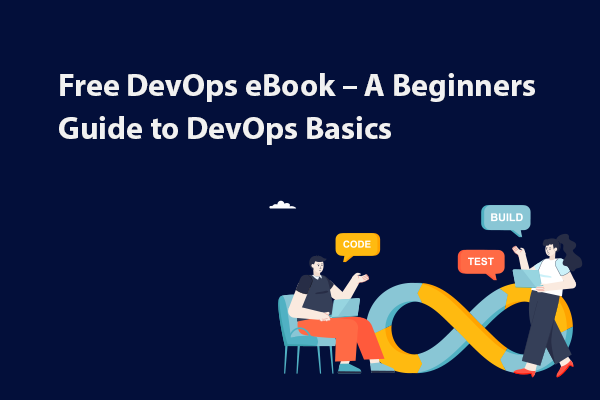
Free DevOps eBook – A Beginners Guide to DevOps Basics
In the software development industry, every company's productivity revolves around software. That's why DevOps is quickly becoming one of the most valuable disciplines for any business in the realm of software development. The goal is to improve the quality and speed of launching new applications. It includes a close relationship between development and operation teams.
“What is DevOps? What methods does it involve?". So, let us understand more about DevOps and the career path after DevOps Certification in this article.
What Does DevOps Mean?
DevOps is a way to build cooperation, collaboration, and communication between software developers and IT operation professionals.
DevOps is inspired by the best agile ideas to help IT deliver faster, more responsive, and higher quality products/services. DevOps is more of a collection of culture and practice than a methodology. Avoiding waste, simplifying your workflow, collaboration, and automation are just a few of the ways DevOps is changing the way IT works.
Agile Vs DevOps
|
Agile |
DevOps |
|
Fills the gap between the development team and customer needs. |
Collaboration between software developers and IT operation departments. |
|
Agile’s main goal is to break down obstacles between development teams and management. |
DevOps is about deployment and software operations. |
|
Agile development is, first and foremost, the way a company thinks about development. |
DevOps makes every effort to deliver software in the most reliable and secure way. |
|
Agile Development places great emphasis on guiding agile team members to have identical skills. |
DevOps’s approach is to share, acquire, and spread skills between development and operational teams. It also supports better communication. |
|
Agile development is based on "sprints". This means that the time is much shorter and different functions are developed during this period. |
DevOps aims to consolidated deadlines and benchmarks with high releases.
|
DevOps Values
With proper DevOps training, you will get to know about:
Culture
Many processes put a strain on productivity whereas small processes can hinder communication and collaboration. It's about people and processes. Reaching a balance is ideal for ensuring the right culture of automation.
Sharing
DevOps seeks a culture where people share ideas and concerns. It helps to improve communication and collaboration but also helps organizations improve.
Automation
Automation tools and technologies are needed to streamline your workflow. Common things DevOps can automate include configuration management, release management, control tools, and monitoring tools.
Measurement
Without proper measurement of data, it is not clear what needs to be improved. DevOps recommends measuring the performance of people, processes, and technology.
Lean
Lean has been added as a core DevOps value as it focuses on waste management and thus adds value to the customer.
DevOps Culture
DevOps is a practice and culture that aims to connect development and operational environments with better collaboration, communication, and integration between developers and IT staff.
By working together, companies quickly obtain the IT systems and services that can react to the changing business environment while maintaining the quality and reliability of these services.
DevOps Career
DevOps is the hottest field in my IT career. Therefore, there are many growing options. As a result, for young DevOps engineers, the salary spread is high. The estimated average salary for them in India is INR 11 lakh/year and $78K / year in the U.S.
LearNow’s DevOps Certification training will help anyone pursuing a career as a DevOps engineer.
The DevOps engineer works with members of the development team to handle the coding and scripts needed to link code elements such as libraries or development kits.
Here are some of the DevOps engineer's roles, responsibilities, and skills:
• Ability to solve system problems in various areas of the platform and application.
• Effectively manage projects through standards-based, open platforms.
• Increase project transparency through traceability.
• Collaborate to improve quality and lower development costs.
• Analysis, design, and evaluation of scenarios and automation systems
• Provide best security solutions to critical system problems in the cloud.
To Summarize
If you're working in the operational IT area and looking to hone your skills, LearNow is the best place to start learning about DevOps.
DevOps Certification is one of the most sought-after IT certification courses now.
The DevOps revolution is gaining pace. Unlike traditional IT operations, the goal of DevOps is to increase the speed at which features are developed and released, with very short lead times.
